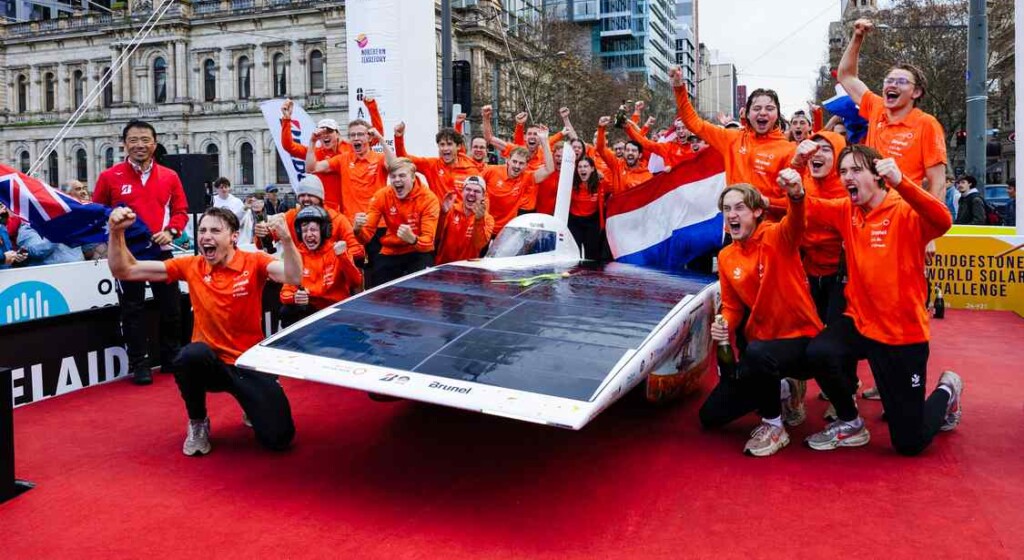Jenny Buchan, UNSW Sydney
The blue and red boxes with white dots are immediately recognisable as containing Domino’s pizzas. The pizza chain is Australia’s largest and is run as a franchise, with the ASX-listed public company Domino’s Pizza Enterprises holding the Australian master franchise rights.
Industry analysts IBISWorld calculate Domino’s has 4.2% of the fast food and takeaway market in Australia.
But recent reports suggest all is not well with many of the store owners, who are struggling with rising costs and declining profitability.
Troubling reports
The central issue appears to be what the federal government describes in its code of conduct as the “the imbalance of power between franchisors and franchisees”.
The Australian Financial Review has reported troubling claims in two key areas:
Domino’s appears to have doubled the margin on the key food ingredients it sells to franchisees and increased its advertising levy, according to a letter from store owners represented by the Australian Association of Franchisees. This could reduce their profitability
Domino’s Australian chief operating officer, Greg Steenson, reportedly encouraged franchisees in a presentation to take advantage of restructuring schemes that allow insolvent companies to continue to trade by negotiating repayment plans with the tax office and other creditors.
In a letter to Domino’s quoted in the report, the franchisees said their earnings have remained flat for 15 years, and have not kept up with inflation.
A long history of disputes
A former franchisee told a parliamentary inquiry into the franchising model the margin squeeze meant
franchisees can be ripped off by [Domino’s Pizza Enterprises] when forced to buy supplies at a higher price than they could get through their wholesalers.
He said the cost of food, labour, rent and other fixed costs had risen, but in 2019 pizzas were still sold at 1990s prices. “Nobody is left to pay for this but the franchisees,” the former owner said.
According to the Financial Review article, the cost of supplies remains a problem for franchisees. Time will tell whether Domino’s proposed 70 cent increase in pizza prices will help.
In response to questions from the Financial Review, Domino’s said the food margin had not “materially changed” in five years, despite volatility in ingredients prices.
Government reviews found the previous regulations had loopholes that did not sufficiently protect franchisees. There have been a string of high-profile disputes involving auto services company Ultra Tune, coffee chain 85 Degrees Coffee, Pizza Hut and others.
Following a 2024 inquiry, changes to the code of conduct were introduced this year.
Advertising costs on the rise
Advertising expenditure comes from what is now known as a “special purpose fund” in the code of conduct. Franchisors need to provide franchisees with disclosure about how the money is spent.
In 2017, the consumer regulator Australian Competition and Consumer Commission fined Domino’s A$18,000 for allegedly slipping on its obligations to advise franchisees about its marketing spend.
Ensuring franchisees have a genuine say in how their increased contribution is spent could help to address any imbalance of power between Domino’s and its franchisees.
Franchisees reportedly now pay 6% of their earnings to Domino’s for marketing and advertising, up from 5.35%. That is in addition to 7% of gross sales paid as royalties, and other costs for email and bookkeeping.
What insolvent means
The insolvency law for small businesses is explained by the Australian Taxation Office as a process that enables financially distressed but viable firms to restructure their existing debts and continue to trade.
The press reports say the franchisees of about 65 Domino’s stores were on repayment plans with the Australian Taxation Office. Many franchisees own two or more outlets.
Under the Corporations legislation, companies on these repayment plans may be trading insolvent, or believe they will become insolvent. Insolvent means they cannot pay their debts when they fall due. If this is the case, a key question that needs to be answered by Domino’s is whether their franchised outlets can become profitable.
In another media report, Domino’s was quoted as saying it disputed the number of stores on repayment plans, adding it was a “significantly smaller” number of franchisees.
The company was contacted for comment but did not respond before deadline.
What this means for the stores
So what does this mean for Domino’s store owners who may be trading insolvent?
Under the law, the restructuring process allows eligible small business companies:
- to retain control of the business, property and affairs while developing a plan to restructure with the assistance of a small business restructuring practitioner
- to enter into a restructuring plan with creditors.
If a company proposes a restructuring plan to its creditors, it is taken to be insolvent. This is a game changer for the franchisee and its creditors.
Franchisees receive protection from creditors who want to enforce rights under existing contracts. A franchisee’s creditors include suppliers, its landlord, employees, the tax office and the franchisor (in this case, Domino’s).
Currently these store owners are protected from any creditors pushing them to pay their debts. The restructuring process gives the store owners some breathing room while the debt negotiations take place.
The imbalance of power persists
Despite government inquiries and reviews, it seems the imbalance of power between the Domino’s franchisees and their franchisor persists.
But Domino’s can’t afford to stay the same. Franchisees need to make a profit. The move to enter restructuring could be a temporary band aid.
Domino’s largest shareholder and executive chairman, Jack Cowin, was appointed in July after the former chief executive left after just seven months. Cowin understands the franchised fast food sector and has pledged to lead a cost reduction program that will improve the profitability of stores.![]()
Jenny Buchan, Emeritus Professor, Business School, UNSW Sydney
This article is republished from The Conversation under a Creative Commons license. Read the original article.




 The Brunel Solar team from the Netherlands celebrates victory in Adelaide – credit, Charlie Bliss, Tim Hanley, Riley Williams, Julian Modra, Michael Hurren & Reece Calvert from Swift Hound.
The Brunel Solar team from the Netherlands celebrates victory in Adelaide – credit, Charlie Bliss, Tim Hanley, Riley Williams, Julian Modra, Michael Hurren & Reece Calvert from Swift Hound.
